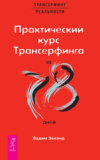Kitabı oku: «Exorcism»

Exorcism
Penny Jordan

Table of Contents
Cover
Title Page
CHAPTER ONE
CHAPTER TWO
CHAPTER THREE
CHAPTER FOUR
CHAPTER FIVE
CHAPTER SIX
CHAPTER SEVEN
CHAPTER EIGHT
CHAPTER NINE
CHAPTER TEN
Copyright
CHAPTER ONE
IT had been a perfect spring, the bright, rain-washed April days giving way to a totally unexpected lazy May heat that made the Dorset hedgerows bloom, and old Harry Carver, who came twice a month to do their garden, proclaim pessimistically that nothing good would come of it, but now May was sliding languorously into June with no sign of a break in the weather. Christy was lying on her back in the small orchard, squinting at the sky occasionally and wondering if she dare be lazy for another half an hour or whether she ought to return to the house and do some work. That was one of the pleasant aspects of working for one’s mother, and having endured the rigours of a nine-to-five routine in the early days when she had just left secretarial school, Christy appreciated her present freedom all the more.
Not that her job was in any way a sinecure. Working for a compulsive writer brought its own share of crises. Her mother loathed using a dictaphone and had a habit of scribbling down her thoughts in the most unlikely places on the smallest scraps of paper she could find, and then there was always the inevitable panic when one of these ‘treasures’ couldn’t be found.
Not many young women of twenty-four would want to work for their mothers, especially not such a successful mother as hers, Christy acknowledged, but then the images the words ‘successful’ in conjunction with the word ‘woman’ conjured up were so totally at variance with her petite, vague, sometimes infuriating, often enchanting mother.
Christy had lost count of the number of people over the years who had been lulled into a false sense of security by her mother’s apparent vagueness. As a young widow with a small baby to rear and no visible means of support, other than a small pension from the Armed Services, she had somehow managed to withstand the strong pressure brought to bear by both her own and her husband’s parents that she make her home with them. At twenty she was young enough to marry again they had both told her, and it was foolish to burden herself with the responsibility of a small baby when both sets of parents were willing to take over for her. Somehow she had withstood that pressure … somehow she had carved a niche for herself in the jungle of the publishing world persevering with her children’s stories until she found a publisher willing to take them.
Now, under her pen-name, she was famous, but Christy did not envy her that fame. Any artistic talents she had inherited from her mother found expression in the illustrations she did for her mother’s books. And not only her mother’s. Christy had a rare talent that other writers had seized on eagerly, and the royalty cheques she received for this work could have made her pleasantly independent of her mother had she had any desire to live alone.
Perhaps she was unusual at twenty-four in still living at home. But when ‘home’ was a rambling Victorian vicarage with close on two acres of delightful garden, set in a small Dorset village complete with thatched cottages; a small village store and a local pub whose food drew visitors from miles around, it seemed hard to visualise any merit in moving. She and her mother got on well and were close without stifling one another. Georgina Lawrence had always had the knack of preserving her own privacy and it was a gift she had passed on to Christy. While it would have been a fallacy to say they were as close as sisters, they were, as well as mother and daughter, friends, with some interests they shared and some they did not. Her mother was wise, Christy acknowledged, in the way that people who had suffered great emotional pain often were. She was also capable of standing back from a situation and assessing it from the outside; although she had explained to Christy that both sets of parents had been bitterly opposed to her living alone when she was widowed, she had also gone on to say that their opposition was simply a sign of their caring. All in all her mother was a very remarkable woman, and yet Christy felt no envy of her. She herself was not professionally ambitious … perhaps that was what was wrong with her … her lack of ambition. Her mother had told her that she took after her father; the young army captain who had been killed in Northern Ireland by a bomb blast.
Christy had once asked her mother why she had never married again. She knew it hadn’t been for lack of offers. Even now at forty-five her mother was an extremely attractive woman; small and slim with a thick head of naturally curly dark red hair and animated feminine features.
‘Perhaps because I’ve grown beyond it,’ she had responded openly. ‘I loved your father as one does at eighteen—blindly … passionately … our relationship was one of love formed between equals … both of us young and united against our parents. They thought we were too young to marry, and probably they were right. The danger of marrying young and then losing one’s partner is that one sees the deterioration of one’s peers’ marriages while one’s own remains perfect and inviolate. Who knows, had your father lived he might have become entrenched in the same male role I see so often in the husbands of my friends … he might not have wanted me to write … I’m a very selfish woman, Christy … women have to be selfish to do what they want because there are so many other pressures on them, both emotional and social. If I have not married again perhaps it is because I relish my right to make my own decisions, to do as I please. As a man’s lover I retain that right and he respects me for it, as his wife, a subtle re-arrangement of priorities takes place and most men, whether they are prepared to admit it or not, want their wives to conform to a certain image. Perhaps with your generation it will be different, I don’t know, but I should hate to commit myself to a relationship and then find it soured by habit and familiarity.’
Christy had understood what her mother had meant. She had looked long and hard at the marriages of her mother’s friends, and realised why her mother might prefer a lover to a husband. And undoubtedly there must have been lovers, although her mother had always been discreet. There had been no procession of ‘uncles’ through Christy’s life, and although her mother had been a loving, caring parent, she had also instilled in Christy an independence which she herself shared; a subtle reminder that both of them had rights as individuals which they must respect in themselves as well as in one another.
Earlier on in the week her mother had gone to London to see her publisher, and had decided to stay there a few days in order to do some shopping and catch up on old friends. Christy could have gone with her but had elected to remain at home. The city in the May heat was not something that appealed to her. She stretched out luxuriously and yawned. Her skin, after so many hours spent in the garden, was tanning a warm gold. In looks she was completely unlike her mother. Her gypsy dark skin and hair had been inherited from her father, her long, heavily lashed grey eyes from her maternal grandmother; her height and slenderness, like her colouring, from her father. At twenty-four, without a scrap of make-up on and her shoulder-length hair curling wildly round her face she looked more like eighteen, although those with the experience to see it would know that pain had at some time touched her and left its indelible mark, and that having once touched her, would not be allowed to do so again.
If she had one thing in common with her mother it was a shared strength of will that both cloaked skilfully. Georgina with her vagueness, and Christy with her relaxed almost lazy approach to life. Those who didn’t know her well marvelled at her lack of ambition and said pityingly that no doubt it sprang from being overshadowed by her mother, but the real explanation lay simply in the fact that there was nothing in life that Christy found worth competing for. An only child, she had a deeply romantic vein to her personality and had grown up daydreaming of fairy tales; stories of valour and heroics and later, tales of bitter-sweet and indestructible love. Her mother had gently tried to warn her that life was vastly different, but she had chosen to ignore that warning—and had paid a price for it. In one brief summer she had tasted all the pleasure life could hold, but the sweetness of it had turned to acid in her mouth when she realised she had simply been living a daydream. She had been eighteen then, now she was twenty-four. She had long ago come to terms with her disillusionment and her memories of the man who had caused it. Now she was content to accept life for what it was … now she did not daydream. One day perhaps she would find a pleasant man whose company she enjoyed enough to marry … they would have children, and a placid life, but for now she was content with her life the way it was.
The sound of a car coming down the narrow lane that led to the vicarage made her get up. From the noise it was making it sounded as though it was their one and only local taxi, which meant that her mother was back.
Brushing the grass from her shorts she walked lazily towards the house. Her trips away always fired her mother into frantic bouts of work, although before she left Georgina had said that she didn’t intend to start work on her next children’s collection until the autumn. She had even talked about going away on holiday—something almost unheard of for her mother. Smiling to herself, Christy walked into the kitchen and filled the electric kettle.
‘Marvellous—you heard Sam’s car. I’m dying for a cup of tea … London was stifling … you were wise not to come.’
There was a note in her mother’s voice that Christy picked up on but didn’t respond to, concentrating instead on making the tea.
‘Outside, or in the conservatory?’ she asked her when she had set a small tray with cups and her mother’s favourite biscuits. Neither of them had a weight problem, but both of them were sparse eaters.
‘The conservatory,’ Georgina replied, grimacing faintly as she added. ‘You don’t know how lucky you are not to have inherited my wretched Celtic skin.’
‘Being pale and interesting is coming back into fashion,’ Christy responded. Her mother burned at the slightest touch of the sun, the pallor of her skin emphasising the warm golden brown of her own.
‘I should have called you gypsy …’ Georgina responded wryly, taking the tray from her and leading the way to the house’s old-fashioned and delightfully overgrown conservatory. It boasted a vine that ran wild much to Harry’s disgust, but which both women loved, and a profusion of other plants that Georgina spent part of each morning crooning to. It helped her to collect her thoughts, she claimed.
Following her mother barefoot, her long legs slender and brown Christy sank down into one of the comfortable, ancient chairs. Georgina raised her eyebrows slightly as she observed her daughter’s bare feet. They could represent no greater contrast, Christy reflected, studying her mother’s immaculate slate grey skirt and toning blouse; her silk stockings and elegant high-heeled shoes.
‘No shoes?’ Georgina commented. ‘You could cut your feet.’
‘It’s healthier for them,’ Christy responded with a lazy smile, ‘and you know how big they are. Put them in delicate shoes like yours and I’d look like an elephant.’
It wasn’t true and they both knew it. Christy could, when she wanted to, look supremely elegant; she wasn’t her mother’s daughter for nothing, but she preferred not to copy, instead developing her own style; her clothes casual and comfortable.
Sipping her tea Georgina studied her daughter covertly. Had she done the fight thing in teaching her to be independent and self-reliant …? Christy had a vulnerability she herself had never possessed; underneath her indolent exterior she hid emotions and uncertainties that tortured only those who possessed natures that were both romantic and idealistic. Never a joiner, Christy’s individuality had become more marked over the years. A distinctly attractive young woman she seemed to prefer to be alone rather than out dating. Georgina sighed. How inconvenient the mothering instinct was; and after all the time she had put in teaching Christy to respect her own privacy and that of others, she herself could scarcely now intrude, and question. She put her cup down quickly, unaware that her daughter’s quick eye had picked up on the betraying uncertainty of her movements.
‘Okay, spill it out,’ Christy commanded laconically. ‘You’ve got to produce three new books by autumn, is that it?’
When her mother didn’t respond, Christy frowned. ‘There is something, I know. Please tell me …’
Putting down her cup, Georgina said quietly, ‘Darling, Simon’s back.’
Christy was proud of her lack of reaction. Not even her expressive grey eyes were allowed to mirror any feelings.
‘Returning in triumph no doubt after the success of his American tour. Mum, I’m not eighteen any more,’ she added gently, ‘Simon Jardine means nothing to me now other than a bad memory. I’m glad for his sake that he’s found success at last—he wanted it so badly, he’d never have been satisfied with anything less.’ Restless, energetic Simon whom she had met six years ago, and who had stolen her unwary, foolish heart. He had told her then that nothing was more important to him than his writing and she, foolishly, had not believed him. He had just had his first book accepted by her mother’s publishers; a blend of fact and fiction that made compulsive reading. Now he was a world-renowned author with three books to his name, all of them bestsellers. He had been out of the country for the last four years, either writing, or doing promotional tours, with only brief visits to the UK, mainly to see his publishers. Now, according to her mother, he was back. So what was she expected to do? Disintegrate into a thousand broken pieces?
‘Don’t look at me like that,’ she chided her mother, pouring each of them a cup of tea. Her own senses relayed to her the disturbing information that her pulse was racing, her stomach muscles knotting in remembered tension. ‘Okay, so I had a childish crush on Simon when I was eighteen—everyone’s entitled to one mistake.’ She managed to produce a wry smile. ‘Cheer up Mum, it’s not the end of the world.’
She hadn’t always thought that. At eighteen, her daydreams and folly cruelly exposed by Simon’s sophisticated mockery of her, she had thought her world had ended; she had wanted it to end, unable to endure the pain of his cruelty … and he had been cruel … encouraging her to believe he returned her feelings only to turn on her with ill-concealed contempt … taunting her for her inexperience. It had been a hard lesson for her to learn, especially as she had made no attempt to hide her feelings for him.
‘Well then, I’m afraid there’s something else I must tell you.’
Her heart seemed to seize up, her body freezing and yet burning at the same time. Dear God don’t let her mother tell her he was married … in love with someone else … ‘Jeremy wants you to spend the summer working for him.’
It was several minutes before she could take in the meaning of her mother’s words, so great was the shock to her system of her overwhelming reaction. For years she had barely given Simon a thought. She had put him behind her, and yet the very mention of his name; the very thought of him being involved with someone else … Just reaction, she assured herself shakily … Of course she was over him … what she had felt for him had been an adolescent crush, nothing more.
‘Jeremy wants me to work for him?’ she repeated, trying to force her brain to work as she fought for control of her rioting emotions.
‘No, darling, not for him,’ her mother corrected patiently, ‘He wants you to work for Simon. Apparently, his latest book is going to be set in the Carribean. It’s about an Elizabethan adventurer who sailed with Drake and then turned pirate. Simon discovered a vague story about him when he was on holiday there last year. Apparently there’s a local legend about this man, and the dynasty he founded. He died in a shipwreck, apparently caused deliberately … the local legend is that it happened because a rival pirate gang had raided his home. Simon has worked out where such a wreck would be, if indeed the story is true, and he needs an experienced secretary, cum illustrator, cum diver to work with him during the summer while he tries to piece the story together.’
‘Why me?’
Her eyes were guarded, cool almost as she studied her mother.
‘I promise you it wasn’t my idea. Jeremy mentioned you first. He told Simon what an excellent job you did for Miles in India last year.’
Christy sighed. Last year she had spent four months in India with Miles Trent, another writer involved with the same publishing house as her mother. Miles had been writing a novel about the British Raj and had persuaded Christy to go to India with him as his assistant. A mild-mannered, chronically disorganised man, he had claimed that the speed with which his novel had been completed was due solely to Christy’s help. It was Christy’s personal view that the reason Miles had been so pleased with her had little to do with her professional ability, but a good deal to do with the fact that she was completely immune to his rather film-starish brand of blond good looks. Poor Miles; no one could be less equipped to deal with the feminine interest he aroused then he was. He looked every inch the blond macho hero, but in reality was an extremely serious writer, dedicated to his work—a bachelor still at thirty-odd, he had leaned heavily on Christy for protection from the many women who had tried to get involved with him. He was very fond of Christy but Georgina had been very frank in the opinion she gave to Christy which was that Miles was a man with little enjoyment of his effect on the opposite sex, and therefore unlikely to be very rewarding as a lover. Christy was inclined to think that her mother was right, and it had amused her when she came home to see the headlines in the gossip press, linking her name with his, and suggesting coyly that there was more than a working relationship between them. Two more unlikely lovers it would be harder to find, she had reflected at the time.
‘Well, there’s no need to worry about it,’ she told her mother calmly now. ‘Simon is hardly likely to want me as his research assistant. Why settle for a person who can combine all three roles in one, when he can have the variety of three separate females to choose from. You know Simon; he always did prefer variety.’
‘I’m afraid on this occasion it seems that he doesn’t,’ Georgina replied quietly. ‘He wants you to work for him, Christy. In fact he made a point of telling me so. Apparently, the timing of the diving is very important … the weather will only be suitable for a very short span of time.’
‘Tell him I can’t swim,’ Christy retorted curtly, ‘I don’t want the job Mum … I’m looking forward to my summer off.’
‘Christy …’ Georgina looked at her daughter helplessly. How could she trespass into her daughter’s privacy when she was the one who had taught her to respect it in herself and others? ‘My dear, I’m afraid he’s determined to have you …’
It was an unfortunate choice of words, and one that made Christy’s grey eyes glitter.
‘He intends to come down here to see you. I simply could not put him off … If you refuse to see him he’ll …’
‘Assume that I’m still suffering from a massive adolescent crush,’ Christy supplied bitterly. ‘Well, I can’t see why I should allow myself to be pressurised into accepting a job I don’t want, simply to prove something I don’t care about to someone I’m not interested in.’
‘Well if that’s how you feel …’
Georgina sounded so helpless and vague that Christy stared at her suspiciously. She knew her mother when she used that tone of voice, it meant she was concealing something.
‘Obviously you don’t agree with my decision.’
‘My dear, it isn’t a matter of not agreeing,’ Georgina said gently, ‘it’s more a matter of why you’re so determined not to agree. If you really do feel nothing towards Simon I can’t see why you’re refusing to accept the job. Only the other month you were saying you’d love to go to the Caribbean, but you couldn’t see how you could afford it.’
‘That was for a holiday—not to work, and you’re right, I’m not indifferent to Simon,’ she said crisply. ‘I dislike him. We wouldn’t work in harmony together.’
‘Well, you know your own mind, but I suspect that Simon will try to change it for you. This book means a lot to him, Christy. He’s done all the ground work and all he needs to do now is to make this trip out to the Caribbean.’
‘And of course nothing must stand in the way of what the great Simon Jardine wants,’ Christie said bitterly. ‘I’ve been used as a sacrifice on the altar of his ambition once Mum, I’m not letting it happen again.’
After that the subject was allowed to drop. Her mother went upstairs to unpack and Christy wandered back into the garden to enjoy the last of the afternoon sun, but found that she could not settle or relax. Of course she had made the right decision, Simon Jardine had hurt her badly once, so badly that the scars still had the power to ache, but she wasn’t vulnerable to him any longer. So why was she refusing? Forcing herself to be honest with herself, she acknowledged that if the job had meant working with someone else, Miles for instance, she would have jumped at it. Was she indifferent to Simon? Of course not; how could she be? He had hurt her deeply and of course she was wary, but that didn’t mean she still had a crush on him—far from it. She mulled the matter over in her mind, convinced that she had made the right decision. In that summer she was eighteen she had lived on the edge of her emotions all the time. She didn’t want that again. She was safe now and she enjoyed her safety, she didn’t want to have to be constantly on edge, constantly reinforcing her immunity to him. And Simon himself would never accept her indifference; he was the sort of man who demanded by right the interest of every woman who crossed his path, no matter whether he was prepared to return that interest or not.
Forget about him, she scolded herself, put him out of your mind … concentrate instead on the summer ahead. She closed her eyes, letting her thoughts drift, but annoyingly they drifted back in time not forward. At last unable to fight the crushing pressure of her memories any longer she gave up the battle. Oh very well … perhaps she ought to remember … perhaps she ought to relive those days again, if only mentally … a sort of mental spring-cleaning in effect.
She had been just eighteen and attending secretarial college, looking much as she did now, although then her movements had been coltish and uncertain, her face eager, mobile, all her emotions visible in her eyes.
Her mother had been in London for over a week and she had telephoned to say she was bringing guests back with her—her publisher and a new writer who was joining the firm. Christy hadn’t been particularly concerned. She had known Jeremy Thomas since she was five years old and this wasn’t the first time Georgina had brought visitors down to the vicarage.
She had been in the orchard when they arrived, deeply engrossed in a book. She hadn’t bothered to get up, knowing that Mrs Carver, who came in from the village once a week to clean, was there, on hand to offer the arrivals a welcome and sustenance. She would go in later when the bustle was over. She would have had to change to meet them anyway, and she wasn’t in the mood. Her shorts were grubby with grass stains, white and brief, a sign that at eighteen she was still growing; her T-shirt clinging to her taut breasts. At eighteen she was vaguely embarrassed by her body; so alien to her after years spent looking at the petite femininity of her mother. Voluptuous and sexy was how her mother described her, slightly teasingly, and at eighteen she was too young to feel entirely at home with a body that drew admiring male eyes of all ages. She squirmed a little in the long grass remembering the overt stares of the few boys she knew. Always slightly shy she had made few friends at college; most of the other girls were slightly withdrawn, as unable to cope with her open sexuality as she was herself.
She was lying on her stomach, too deeply engrossed in her book to be aware of anything else, when someone bent over her to read the printed page, his voice husky, and entirely male, infusing the words she was reading with a sexuality that her own unawakened mind had not entirely absorbed. Her immediate reaction had been to snap the book closed and roll over to glare angrily at the intruder. She hated anyone coming between her and her involvement with whatever she was reading. She was still at an age where it was easy to cast aside her own person a and slip into that of the heroine and by reading as he had done the intruder had taken on the role of hero, and his voice had stroked her skin as dexterously as the hand of any lover, causing a reaction inside her that made her tense and coil, like a wary cat.
‘At your age you should be experiencing romance, not reading about it,’ he had mocked, his clever, masculine mouth curling faintly. Tall, taller by far than most of the men she knew, he seemed to blot out the sun with shoulders so powerfully broad that she automatically flinched away from the sheer sexuality of him. Dressed in faded jeans and a checked shirt, he was so intensely masculine that Christy, unused to such maleness, automatically recoiled from it.
His eyes had gone from her face to her body, studying her in a way that brought a wave of hot colour to her skin. Where his glance lingered, it seemed almost physically to touch. She could almost feel the explorative drift of his fingers against her skin, and she had shivered violently, hearing his soft laugh.
‘So you are Georgina’s “gypsy”,’ he had said slowly, ‘a wild and passionate little savage indeed … I wonder how long it would take to tame you.’
She had stood up almost violently; angry at his intrusion and yet strangely excited by him. His hair was even darker than hers, blue black with a silky sheen, his skin faintly olive. His eyes which she had expected to be dark were a strange metallic gold; amber almost and she had stared curiously into them, forgetting her anger as she registered their slow appraisal.
‘Definitely not your mother’s daughter,’ he had said at last. And for some curious reason she had felt intensely hurt; as though in some way she did not measure up to a standard he had set her. It was the first time she had ever wished she was like Georgina. Was this man her mother’s lover?
He was younger than Georgina, perhaps somewhere in his mid-twenties, although it was hard to tell, and yet even her innocence could not protect her from being aware of his intense sexuality. It wasn’t that he was outstandingly good looking; his features were almost too hard for that, his jaw and chin stubbornly unyielding; his cheekbones high, thrusting against his tanned skin, his nose faintly crooked as though it might have once been broken; but there was something about him that made her want to stare and go on staring. He stretched his hand out to her, grasping her wrist with lean fingers. Their touch was cool and yet where they circled her skin it seemed to burn like fire.
‘Georgina sent me to get you … It seems you and I are to play together like good children while she and Jeremy discuss work. Do you think we can do that, Christy?’ he had asked her mockingly, ‘Do you think we can play nicely together?’
She had known instinctively then that he and her mother were not lovers, and in her pitiable innocence had not realised the danger the joy that knowledge brought, represented. She had looked into his amber eyes and had felt suddenly as though for the first time in her life she was truly alive. He had smiled down at her, a curious smile tinged with a knowledge she could only guess at. And that was how it had started.
‘Christy?’
Hearing her mother call her name brought her out of the past, so abruptly that she still carried its residue of pain with her as she made her way back to the house. She had thought reliving what had happened might have a cathartic effect, but perhaps for that she needed to relive every event … every moment of that brief summer.
Ücretsiz ön izlemeyi tamamladınız.




















